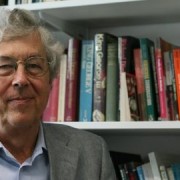World leaders gathered in London yesterday for the global summit on dementia, which affects one in fourteen people over the age of 65 in London.
Alzheimer’s is the most common cause of the disease that causes an ongoing decline of the brain and its abilities, including problems with memory loss, thinking speed, language and understanding.
David Cameron, who spoke at the conference in the West End, announced that the United Kingdom would aim to double annual funding for dementia research to £132 million by 2025.
The Prime Minister said: “We will get some of the most powerful nations around the table in London to agree how we must go forward together, working towards that next big breakthrough.”
In London, according to the National Health Service, 31,160 people were diagnosed with dementia in 2011.
In the EastLondonLines boroughs, the figures follow the national trend. People aged over 65 are more likely to be affected by the disease.
Dementia affects Croydon more than any other ELL borough, with 12.2 per cent of the population is aged above 65.
Tower Hamlets, Hackney, and Lewisham all have a pensioner population below 10 per cent.
In the UK, according to the Quality Care Commission, 670,000 people are estimated to have the disease. This number is expected to double in the next three decades.
With an increasingly ageing population the Government is forced to decide where to invest new funding for research and training – the focal point of yesterday’s summit.
Funding research is only 8.5 per cent of that for cancer, according to 2010 figures from the Alzheimer’s Society. With the disease affecting an increasing amount of people, the Alzheimer’s Society UK has called for a sevenfold increase in the funding for research, to make it equal to.
Sonya Soley, Dementia Support Manager at Lewisham Mindcare, an organization providing support for patients in the borough, said: “It’s not just about memory. There are other things to be considered, like speech and interactions, but people just talk about the memory.”
Soley added: “You can live well with dementia with the correct support and routines which we endorse. We want to encourage people to live a quality life.”
Responding to Cameron’s announcement, she said: “It’s about finding what’s appropriate, making sure we have the appropriate services to meet the patients’ needs.”
“It’s all about catering to the individuals’ needs, not going to ten different services and getting lost in referrals. It’s really important, because [the disease] is stressful enough, and it’s very difficult for families.”
Lewisham Mindcare provides a wide range of services for families and patients because dementia is a progressive illness. A person with early stage dementia has significantly different needs than someone in the later stages of the disease.
Rose Pearson, an advisor at Hackney’s Alzheimer’s Society, said her organisation seeks to provide a similarly wide-ranging service.
Pearson said: “We have a dementia advisory service, we work with carers, we do home visits, we run a career support group, a career education programme, we run a weekly group called singing for the brain…We also have a monthly group called ‘Hackney Coffee Club’ with a different activity every month, information services, and engaging activities.”
Both Croydon and Tower Hamlets are home to Alzheimer’s Society chapters, providing a number of services for people at different stages of the disease.
Croydon, for example, has a ‘Forget-me-not Café’ which proposes activities for people living with dementia.
Life expectancy of males in the UK is 79.2 years and 83 for females according to the National Office of Statistics.





